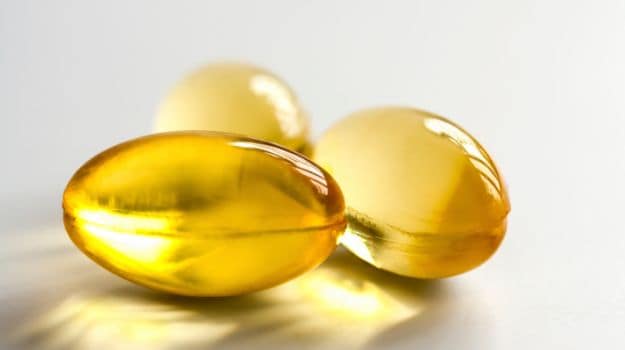The sunshine vitamin plays a very important role in the well-being of our body. Only when we have adequate amounts of Vitamin D can other vital activities take place, such as the absorption of calcium and phosphorous by the body which result in healthy bone structure. Vitamin D, which is both a vitamin and a hormone, also helps maintain the immune system, cardiovascular system, cholesterol level, blood sugar level, among others. However, we often fail to meet the daily requirement of Vitamin D, which then leads to various ailments. This is where supplements step in to the picture.If you look for food sources of Vitamin D, you will learn that fatty fish and eggs are the best bets. But even then, it can be difficult to get enough through diet alone. Most people generate vitamin D by exposing their skin to ultraviolet B rays in sunlight. For vegetarian or those who hate fish, the only option is supplements. Daily intake of vitamin supplements can help you in various daily functions and keep you shielded from diseases too.(Top 5 Vitamin D Rich Foods)

A study done by researchers from Queen Margaret University in Edinburgh states that gulping down Vitamin D supplements can improve exercise performance and lower the risk of heart disease.
Previous studies suggest that vitamin D can block the action of enzyme 11-beta HSD1, which is needed to make the "stress hormone" cortisol. High levels of cortisol may raise blood pressure by restricting arteries, narrowing blood vessels and stimulating the kidneys to retain water. As Vitamin D may reduce circulating levels of cortisol, it could theoretically improve exercise performance and lower cardiovascular risk factors.In the study, researchers from Queen Margaret University in Edinburgh gave 13 healthy adults matched by age and weight 50 microgrammes of vitamin D per day or a placebo over a period of two weeks. Adults supplementing with vitamin D had lower blood pressure compared to those given a placebo, as well as having lower levels of the stress hormone cortisol in their urine.A fitness test found that the group taking vitamin D could cycle 6.5km in 20 minutes, compared to just 5km at the start of the experiment. Despite cycling 30 per cent further in the same time, the group taking vitamin D supplements also showed lower signs of physical exertion."Our pilot study suggests that taking vitamin D supplements can improve fitness levels and lower cardiovascular risk factors such as blood pressure," said Dr Raquel Revuelta Iniesta, co-author of the study. "Our next step is to perform a larger clinical trial for a longer period of time in both healthy individuals and large groups of athletes such as cyclists or long-distance runners,"
Iniesta said.Inputs from PTI

A study done by researchers from Queen Margaret University in Edinburgh states that gulping down Vitamin D supplements can improve exercise performance and lower the risk of heart disease.
Previous studies suggest that vitamin D can block the action of enzyme 11-beta HSD1, which is needed to make the "stress hormone" cortisol. High levels of cortisol may raise blood pressure by restricting arteries, narrowing blood vessels and stimulating the kidneys to retain water. As Vitamin D may reduce circulating levels of cortisol, it could theoretically improve exercise performance and lower cardiovascular risk factors.In the study, researchers from Queen Margaret University in Edinburgh gave 13 healthy adults matched by age and weight 50 microgrammes of vitamin D per day or a placebo over a period of two weeks. Adults supplementing with vitamin D had lower blood pressure compared to those given a placebo, as well as having lower levels of the stress hormone cortisol in their urine.A fitness test found that the group taking vitamin D could cycle 6.5km in 20 minutes, compared to just 5km at the start of the experiment. Despite cycling 30 per cent further in the same time, the group taking vitamin D supplements also showed lower signs of physical exertion."Our pilot study suggests that taking vitamin D supplements can improve fitness levels and lower cardiovascular risk factors such as blood pressure," said Dr Raquel Revuelta Iniesta, co-author of the study. "Our next step is to perform a larger clinical trial for a longer period of time in both healthy individuals and large groups of athletes such as cyclists or long-distance runners,"
Iniesta said.Inputs from PTI
Advertisement










